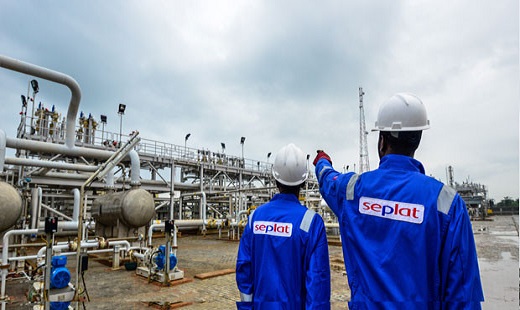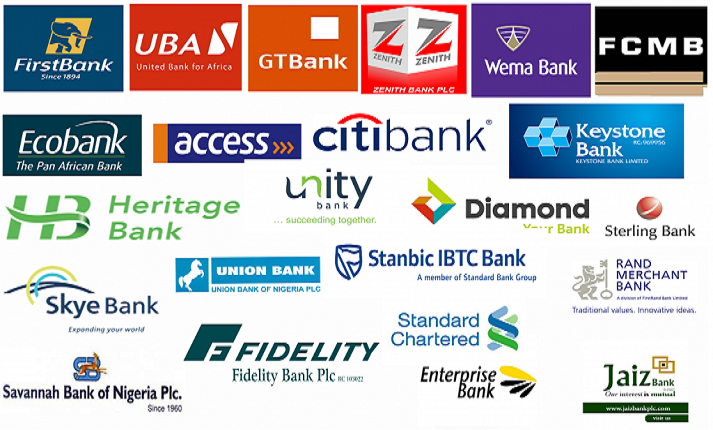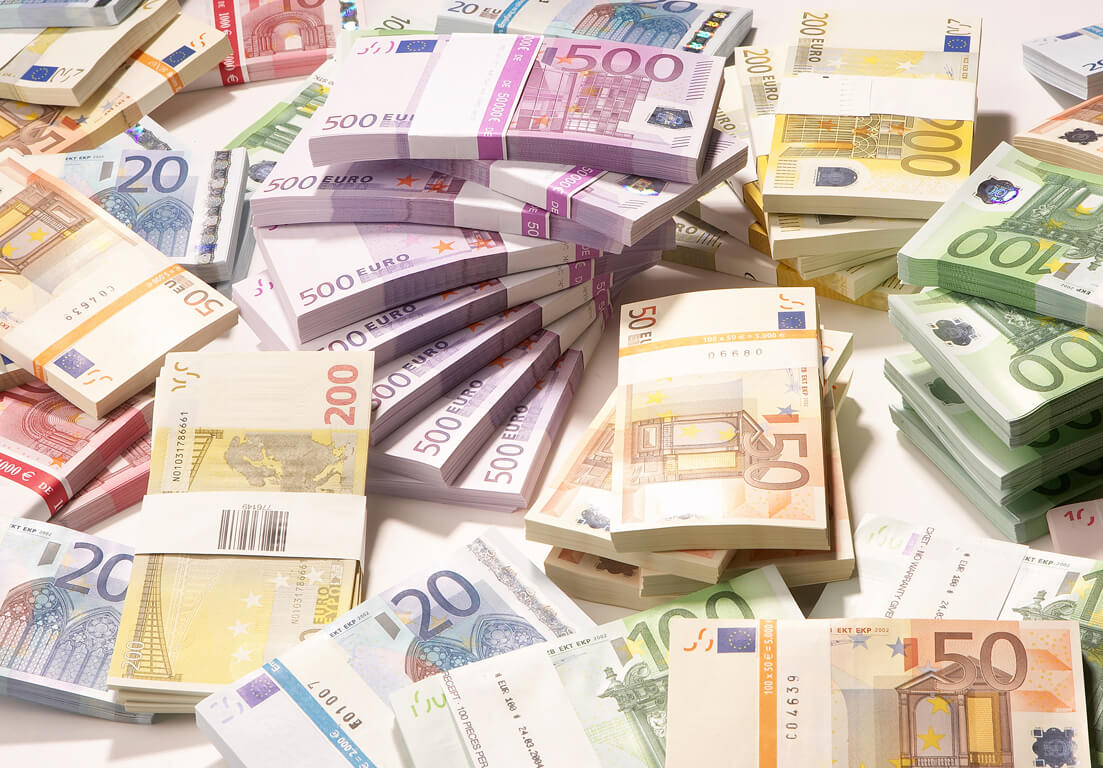Economy
Fitch Rates Seplat Proposed Dollar-Denominated Bond Issuance

By Dipo Olowookere
Last week, one of the companies listed on the Nigerian Stock Exchange (NSE), Seplat Petroleum Development Company Plc (Seplat) announced its intention to issue five or seven-year Dollar denominated bonds to foreign investors.
The notes would be issue to refinance the company’s debts, a statement signed by the oil firm had disclosed.
With investors gearing up for the exercise, one of the renowned rating agencies in the world, Fitch Ratings, has assigned expected senior unsecured ‘B-(EXP)’/’RR4(EXP)’ ratings to the proposed bond issuance.
This information was made known in a statement issued by Fitch on Wednesday, February 28, 2018, which was obtained by Business Post.
Also in the statement, Fitch assigned an expected Long-Term Issuer Default Rating (IDR) of ‘B-(EXP)’ with a Positive Outlook to Seplat.
According to the rating firm, the expected IDR assumes a successful refinancing in 2018, i.e., issuance of USD-denominated senior notes and signing of a new long-term revolving credit facility (RCF).
The assignment of a final IDR is contingent upon the successful completion of the refinancing, with terms and conditions in line with our current assumptions.
The assignment of a final rating to the notes is contingent upon receipt of final documentation substantially in line with draft documentation reviewed.
The ‘B-(EXP)’ IDR reflects Seplat’s small scale by production and reserves, concentration of onshore exploration and production (E&P) assets in Nigeria (B+/Negative), and the cash flow volatility that has been associated with its operating environment.
Specifically, between February 2016 and June 2017, Seplat’s performance was severely impacted by a militant attack and subsequent prolonged downtime at the Forcados oil pipeline and export terminal. The company also has large, albeit declining, receivables from state-owned Nigerian Petroleum Development Company (NPDC).
The force majeure was lifted in June 2017 and Seplat has been ramping up production at its main asset.
Fitch said the Positive Outlook assigned to Seplat reflects its view that the Amukpe-Escravos oil pipeline, which Seplat anticipates to be fully commissioned and operational in Q318, will somewhat mitigate cash flow volatility by providing a viable alternative export route to Seplat.
The successful completion and start of operations of the Escravos oil pipeline coupled with continued production ramp-up across Seplat’s upstream assets could result in an upgrade of the IDR to ‘B’.
Along with the post-restructuring capital structure, the rating captures Seplat’s financial profile over 2018-2020, with forecast funds from operations (FFO) net adjusted leverage expected to remain comfortably below the 3.5x negative sensitivity.
On the key rating drivers, Fitch said Seplat, as a small E&P company with onshore oil and gas assets in Nigeria, had its full year 2017 working interest (WI) production around 37 thousand barrels of oil equivalent per day (kboepd), split nearly equally between liquids and natural gas.
Its main assets are the Oil Mining Leases (OMLs) 4, 38 and 41, production at which was severely constrained in 2016-1H17 due to the closure of the Forcados oil pipeline and export terminal following an attack.
Fitch forecasts that Seplat will continue ramping up its daily oil and gas output to 68kboepd in 2021, which incorporates our conservative estimate of a 20 percent additional downtime on the management forecasts.
It also believes that even following Seplat’s expected production ramp-up in 2018-2021 it will remain a small E&P company with a significant onshore asset concentration in one country. Its WI production and reserves (end-2016 – 241mmboe of proved or 1P reserves) remain commensurate with the ‘B’ category rating for an E&P company.
Fitch said to avoid a repetition of a prolonged downtime experienced when force majeure was declared on the Forcados oil pipeline and export terminal, Seplat and the Nigerian authorities have been working on a number of security options and alternative export routes.
The Nigerian government has prioritised the completion of the 160kbopd Amukpe-Escravos oil pipeline. Seplat currently expects the pipeline to be fully commissioned and operational in 3Q18.
In addition to the Escravos pipeline, two jetties at the domestic Warri oil refinery have been upgraded to allow exports of 30kbopd gross.
However, this is a more expensive option as barging of crude is required and Seplat plans to use Escravos as the primary crude export route, supported by Forcados and the Warri refinery routes.
“We believe that these measures when fully operational should provide adequate flexible cover for Seplat’s export transportation needs, but nonetheless conservatively model additional downtime of 20% in our forecasts for 2018-2020,” the rating agency said in its report.
It noted that following the resumption of production at OLMs 4, 38 and 41 in June 2017, Seplat’s financial profile has improved materially.
“Our 2017 base case forecasts FFO at $134 million vs. negative $11 million in 2016 and FFO net adjusted leverage of 2.5x vs. 8.5x at end-2016.
“We expect that Seplat will maintain a conservative financial profile over 2018-2020, with positive free cash flow (FCF), FFO adjusted net leverage under 2.5x and interest coverage of at least 3x,” it said.
Seplat’s 2017 gas revenues of $124 million were up 18 percent year-on-year and its daily gas sales averaged 293MMscfd (gross, not WI) in 4Q17. Seplat aims to increase gas supply to the domestic Nigerian market. Its gas processing capacity stands at 525MMscfd, while current wells can deliver around 400MMscfd (gross).
Nigerian gas prices are largely de-linked from oil prices, e.g. while average realised oil prices dropped by 21 percent between 2015 and 2016, gas prices increased by 19 percent. Seplat projects a higher share of gas in its production volumes, from 50 percent in 2017 to 60 percent in 2021.
“We view positively the higher share of gas in the sales mix, as it provides a more stable source of revenues.
However, gas remains the smaller business and is projected to account for less than 25 percent of the company’s gross revenues in 2021. Gas sales are also subject to credit risks and FX risks, as USD-linked payments for gas are made in Naira,” Fitch stated.
The rating company said the senior notes and secured RCF are expected to be issued by Seplat and will benefit from pari-passu upstream guarantees from Seplat West Ltd (contributor to almost 100 percent of consolidated EBITDA in 2017), Newton Energy and Seplat East Swamp Ltd.
The RCF will further benefit from a security package including a pledge over the shares of Seplat West and Newton, thus ranking it ahead of senior notes under our recovery analysis.
The notes benefit from a standard high-yield covenant package including covenants on permitted payments, incurrence of indebtedness and issuance of preferred stock, merger, consolidation or sale of assets, investments, creation of certain liens, pari passu in right of payment, and contain no financial maintenance covenants.
On its key assumptions, Fitch said they were based on Brent price deck of $52.5/bbl in 2018, $55/bbl in 2019 and $57.5/bbl thereafter; successful renewal of licenses for OMLs 4, 38 and 41 that expire in June 2019; domestic gas prices of between $2.5/mscf and $3/mscf, in line with management forecasts; and daily oil and gas production volumes ramping up from about 37kboepd in 2017 to 68kboepd in 2021, including a 20 percent additional downtime on the management forecasts.
Other were Opex (excluding royalties) improving from about $7.5/boe in 9M17 to about $6.5/boe in 2020-2021, 20 percent more conservative than management forecasts; average capex of about $105 million in 2017-2021, in line with management forecasts; and other cash inflows and outflows as projected plus $100 million additional outflows assumed by Fitch in each 2019-2021.
On the assumptions that relate to recovery estimates, Fitch its bespoke recovery analysis considered Seplat’s value on a going-concern basis in a distressed scenario and assumed that the company would keep its operating licenses and would be restructured rather than liquidated.
Fitch also applied a 25 percent discount to the 2017 EBITDA reflecting its view of a sustainable, post-reorganisation level upon which it based the valuation of the company. The discount reflects risks associated with the oil price volatility, potential unplanned downtime and other adverse factors.
In addition, the 4.5x multiple was used to calculate a post-reorganisation enterprise value (EV), reflecting a mid-cycle multiple for oil & gas and metals & mining companies in the EMEA region. This considered that Seplat does not have any unique characteristic that would allow for a higher multiple, such as significant market share, or undervalued assets.
As per Fitch’s criteria, the new and prior ranking RCF is assumed to be fully drawn and it has also taken 10 percent off the EV to account for administrative claims.
The waterfall results in a 100 percent recovery corresponding to a ‘RR1’ Recovery Rating for the RCF. The noteholders could achieve a recovery of 70% (RR3) but are capped at ‘RR4’ (soft cap), in line with Fitch’s criteria as Seplat’s physical assets are located in Nigeria.
Fitch said it expects Seplat’s liquidity to improve post refinancing, supported by positive FCF generation and a manageable maturity profile.
Fitch-projected FCF is around $125 million in 2018 and $66 million in 2019 because as at December 31, 2017, Seplat had the equivalent of $437 million in cash.
Economy
FG Targets Credit Access For 50% Workers By 2030

By Adedapo Adesanya
The Vice President, Mr Kashim Shettima, inaugurated the Board of the Nigerian Consumer Credit Corporation (CREDICORP) and gave a 50 per cent access target for workers, saying consumer credit was critical to Nigeria’s ambition of becoming a one-trillion-dollar economy by 2030.
According to him, President Bola Tinubu established the CREDICORP to build a trusted credit infrastructure, provide catalytic capital to lower borrowing costs, and help Nigerians overcome long-standing cultural resistance to credit.
Speaking on Thursday in Abuja when he inaugurated the board on behalf of the President, the Vice President, in a statement by his spokesman, Mr Stanley Nkwocha, said that the quality of life of Nigerians cannot improve without closing the gap between access to capital and human dignity.
“A civil servant who earns honestly does not have to chase sudden wealth just to buy a vehicle, or save for ten years to buy one. A young professional should not remain in darkness simply because solar power must be paid for all at once,” the Vice President said.
VP Shettima disclosed that in just one year of operations, CREDICORP has disbursed over ₦37 billion in consumer credit to more than 200,000 Nigerians, with over half of them accessing formal credit for the first time.
The Vice President said the organisation was specifically tasked with building credit infrastructure to bridge the trust gap between lenders and borrowers, providing wholesale capital and credit guarantees through its portfolio company.
“Ultimately, these critical jobs of CREDICORP will enable access to consumer credit to at least 50 per cent of working Nigerians by 2030,” he said.
The Vice President explained that the new board’s role was not ceremonial as they are custodians of the organisation’s mission, adding that the long-term strength of the institution would depend on their “vigilance, integrity, sacrifice, and commitment.”
He directed Board members to uphold Public Service Rules, the Board Charter, and all applicable governance frameworks, warning that accountability and stewardship of public resources were non-negotiable.
The Chairman of CREDICORP, Mr Aderemi Abdul, expressed appreciation to President Tinubu for his vision behind the formation of CREDICORP and for the confidence reposed in them, noting that the establishment of the corporation marked an important step towards strengthening the nation’s financial architecture.
He assured President Tinubu that the board understands its responsibility and will guide the institution to deliver meaningful benefits to Nigerians.
For his part, Mr Uzoma Nwagba, Managing Director/CEO of CREDICORP, recalled watching President Tinubu say 20 years ago that consumer credit is one of the major tools that will improve the lives of Nigerians.
He noted that over the past 18 months, the institution has benefited more than 200,000 Nigerians, including students.
He assured that the presidential vision behind CREDICORP would not be taken lightly, as the team considers their appointments a unique, once-in-a-lifetime opportunity.
Other members of the board inaugurated include Mrs Olanike Kolawole, Executive Director, Operations; Mrs Aisha Abdullahi, Executive Director, Credit and Portfolio Management; Mr Armstrong Ume-Takang (MD, MoFI), Representative of MoFI; Mrs Bisoye Coke-Odusote (DG, NIMC), Representative of NIMC; and Mr Mohammed Naziru Abbas, Representative of FMITI.
Others are Mr Marvin Nadah, Representative of FCCPC; Mrs Chinonyelum Ndidi, Representative of the Federal Ministry of Finance; Mr Mohammed Abbas Jega, Independent Director; and Mrs Toyin Adeniji, Independent Director.
Economy
NASD OTC Exchange Rallies 0.23% as Nipco Leads Six Advancers

By Adedapo Adesanya
Six price gainers helped the NASD Over-the-Counter (OTC) Securities Exchange retain its stay in green territory after a 0.23 per cent appreciation on Thursday, February 26.
The price gainers were led by Nipco Plc, which added N25.00 to close at N278.00 per share compared with the previous day’s N253.00 per share, NASD Plc rose by N5.13 to N56.41 per unit versus N51.28 per unit, FrieslandCampina Wamco Nigeria Plc expanded by N2.24 to N102.44 per share from N100.00 per share, Afriland Properties Plc grew by 88 Kobo to N18.88 per unit from N18.00 per unit, 11 Plc increased by 35 Kobo to N277.00 per share from N276.65 per share, and Lagos Building Investment Company (LBIC) Plc gained 27 Kobo to close at N3.75 per unit versus N3.48 per unit.
On the flip side, Central Securities Clearing System (CSCS) Plc lost N1.75 to sell at N68.25 per share versus N70.00 per share, and Geo-Fluids Plc depreciated by 2 Kobo to N3.25 per unit from N3.27 per unit.
The weight of the advancers fortified the NASD Unlisted Security Index (NSI) by 9.21 points to 4,034.46 points from 4,025.25 points, and the market capitalisation soared by N5.51 billion to N2.413 trillion from Wednesday’s N2.408 trillion.
Yesterday, the transaction value jumped by 18.8 per cent to N102.8 million from N80.7 million, and the number of deals surged by 18,8 per cent to 38 deals from 32 deals, while the transaction volume went down by 84.9 per cent to 1.3 million units from 8.7 million units.
At the close of business, CSCS Plc was the most traded stock by value (year-to-date) with 34.2 million units worth N2.04 billion, followed by Okitipupa Plc with 6.3 million units sold for N1.1 billion, and Geo-Fluids Plc with 122.1 million units valued at N478.2 million.
Resourcery Plc remained as the most traded stock by volume (year-to-date) with 1.05 billion units exchanged for N408.7 million, trailed by Geo-Fluids Plc with 122.1 million worth N478.2 million, and CSCS Plc with 34.2 million units traded for N2.04 billion.
Economy
Naira Down Again at NAFEX, Trades N1,359/$1

By Adedapo Adesanya
The Naira further weakened against the Dollar in the Nigerian Autonomous Foreign Exchange Market (NAFEX) for the fourth straight session this week on Thursday, February 26.
At the official market yesterday, the Nigerian Naira lost N3.71 or 0.27 per cent to trade at N1,359.82/$1 compared with the previous session’s N1,356.11/$1.
In the same vein, the local currency depreciated against the Pound Sterling in the same market window on Thursday by N8.27 to close at N1,843.23/£1 versus Wednesday’s closing price of N1,834.96/£1, and against the Euro, it crashed by N8.30 to quote at N1,606.89/€1, in contrast to the midweek’s closing price of N1,598.59/€1.
But at the GTBank forex desk, the exchange rate of the Naira to the Dollar remained unchanged at N1,367/$1, and also at the parallel market, it maintained stability at N1,365/$1.
The continuation of the decline of the Nigerian currency is attributed to a surge in foreign payments that have outpaced the available Dollars in the FX market.
In a move to address the ongoing shortfall at the official window, the Central Bank of Nigeria (CBN) intervened by selling $100 million to banks and dealers on Tuesday.
However, the FX support failed to reverse the trend, though analysts see no cause for alarm, given that the authority recently mopped up foreign currency to achieve balance and it is still within the expected trading range of N1,350 and N1,450/$1.
As for the cryptocurrency market, major tokens posted losses over the last 24 hours as traders continued to de-risk alongside equities following Nvidia’s earnings-driven pullback, with Ripple (XRP) down by 2.7 per cent to $1.40, and Dogecoin (DOGE) down by 1.6 per cent to $0.0098.
Further, Litecoin (LTC) declined by 1.3 per cent to $55.87, Ethereum (ETH) slipped by 0.9 per cent to $2,036.89, Bitcoin (BTC) tumbled by 0.7 per cent to $67,708.21, Cardano (ADA) slumped by 0.6 per cent to $0.2924, and Solana (SOL) depreciated by 0.4 per cent to $87.22, while Binance Coin (BNB) gained 0.4 per cent to sell for $629.95, with the US Dollar Tether (USDT) and the US Dollar Coin (USDC) closing flat at $1.00 each.
-

 Feature/OPED6 years ago
Feature/OPED6 years agoDavos was Different this year
-
Travel/Tourism10 years ago
Lagos Seals Western Lodge Hotel In Ikorodu
-

 Showbiz3 years ago
Showbiz3 years agoEstranged Lover Releases Videos of Empress Njamah Bathing
-

 Banking8 years ago
Banking8 years agoSort Codes of GTBank Branches in Nigeria
-

 Economy3 years ago
Economy3 years agoSubsidy Removal: CNG at N130 Per Litre Cheaper Than Petrol—IPMAN
-

 Banking3 years ago
Banking3 years agoSort Codes of UBA Branches in Nigeria
-

 Banking3 years ago
Banking3 years agoFirst Bank Announces Planned Downtime
-

 Sports3 years ago
Sports3 years agoHighest Paid Nigerian Footballer – How Much Do Nigerian Footballers Earn















